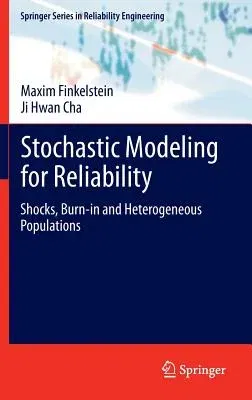Maxim Finkelstein
(Author)Stochastic Modeling for Reliability: Shocks, Burn-In and Heterogeneous Populations (2013)Hardcover - 2013, 24 April 2013

Qty
1
Turbo
Ships in 2 - 3 days
In Stock
Free Delivery
Cash on Delivery
15 Days
Free Returns
Secure Checkout

Part of Series
Springer Reliability Engineering
Part of Series
Springer Series in Reliability Engineering
Print Length
388 pages
Language
English
Publisher
Springer
Date Published
24 Apr 2013
ISBN-10
1447150279
ISBN-13
9781447150275
Description
Product Details
Authors:
Book Edition:
2013
Book Format:
Hardcover
Country of Origin:
NL
Date Published:
24 April 2013
Dimensions:
23.39 x
15.6 x
2.39 cm
Genre:
Science/Technology Aspects
ISBN-10:
1447150279
ISBN-13:
9781447150275
Language:
English
Location:
London
Pages:
388
Publisher:
Weight:
739.35 gm